A Journey Out of the UPC
By Lawrence “Buddy” Martin
Everyone has a story. This story has to do with my departure from the United Pentecostal Church as a former pastor and as an evangelist.
However, I wish it understood that none of what I have to share is directed to individual members of Oneness churches. Nor do I wish to be disrespectful to anyone’s faith. I care deeply for my Pentecostal kinsmen. I also realize many Pentecostals today are simply cultural Pentecostals and do not hold to the strong line of UPC doctrines of salvation. They believe other Christians are just as saved as they are.
My earnest hope is that my testimony will help people see how Oneness Pentecostalism has managed to mismanage the gospel of Jesus Christ, with regard to salvation and especially with an overstress on speaking in tongues.
And since the reality of our redemption is a matter of learning God’s work of salvation, it is good to call to mind something Augustine of Hippo said about the Bible:
“The Bible was composed in such a way that as beginners mature, its meaning grows with them.”
So with Pentecostalism let’s begin with …
Emotional Struggles
A few years back I did research on issues of mental health to better educate myself for the purpose of pastoral ministry. I came across findings that had been conducted about mental patients in California. It stated that the largest religious groups of patients in mental institutions in California were from a Pentecostal background. (Pentecostalism in general, which would include the Charismatic movement.)
In picking up my research again I came across a major study by K. G. Meador and others. It was reported in ‘Hospital and Community Psychiatry,’ a monthly journal of the American Psychiatric Association. Having researched several thousand cases, Meador and his associates concluded that there was a greater rate of depression in Pentecostals than in any other religious affiliation. Here is the quote:
“[We found the] rate of major depression in Pentecostals was three times greater than for any other affiliations.”
The statistics included that Pentecostals have the highest rate of divorce, in addition to the highest rate of emotional and mental disturbances of any Protestant group.
The big question is, why?
Why do Pentecostals suffer greater mental duress than most other Christian groups? Hopefully, I can offer some things to think about. While my concern is largely with Oneness Pentecostalism, it should be understood that Pentecostals in general share in some of the same troublesome issues.
Before we look at the why let me share …
A bit of personal information
My family roots are in Louisiana. The Martins have been here since Billy Martin, a Revolutionary Soldier and his wife, Elizabeth came here in 1804. They were from South Carolina and evidently were part of the great Scots-Irish movement to the west after the war.
My mother was born into a Oneness Pentecostal family in 1920. (Early period of the Pentecostal movement. Twenty-five years before the United Pentecostal church formed in 1945.)
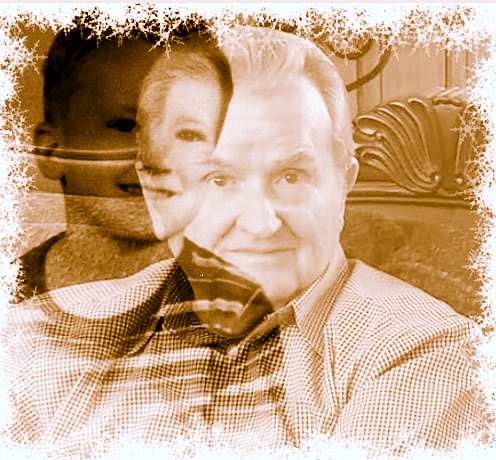
As a young woman, my mom played the piano for an evangelism team made up of her family. Her older sister was an evangelist.
After mom married at age 15, she left the world of Pentecostal. Mom and dad moved to Portsmouth, Virginia during World War II, where they worked in the naval shipyards to support the war effort. (I was one month old when we moved.)
Later mom and dad divorced, and she moved to California where some of her siblings had located.
Mom always carried in her heart both a love and a concern for the things of the Lord. She wanted me to know the Lord, but not in the way of Pentecostalism. (Many people do not care for the emotional extremes that Pentecostalism is noted for.)
A mother teaches her son
My earliest childhood memory is of my mom teaching me the prayer, “Now I lay me down to sleep.” In this childlike way, she taught me to call upon the Lord. Some years later I would come to experience Jesus Christ as my personal Lord and Savior. I would also come to fully realize who I had called upon as a child.
There is no question in my mind that ever since childhood the Lord has kept a watch over my life. Yes, I am one of the ‘beloveds’ of the Lord. (All true believers are.)
Several of my mother’s siblings had also left Pentecostalism. (Seven of the twelve.)
I was too young to remember Virginia. My earliest childhood memories are of California. We moved back to Louisiana in 1949.
I had my first meeting with Pentecostalism in 1949. I was nine years old. (I am 83 now.) It was mysterious and strange. People were falling out, shouting, and dancing. The preaching and singing were filled with passion. Pentecostalism was an awesome world for me.
It did not dawn on me until years later how many of these dancers and shouters would take their leave from Pentecostalism and be later found in more traditional churches. I think this was due to emotional burnout such as my mother experienced.
Anyway, during the next ten years, my exposure to religion would alternate between the United Pentecostal Church and the Church of God – Anderson. But like many young people, my interest in religion began to lessen over time. I enlisted in the Navy at age 18 and served from 1959 to 1963. (Age 18 to 22.)

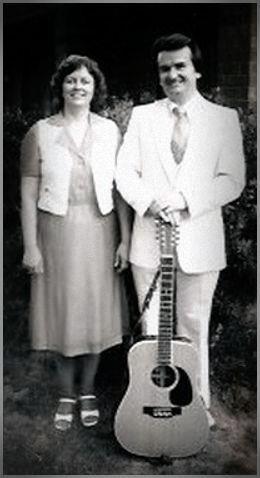
After I got out of the Navy, I relocated to Colorado, where I was to meet my beautiful wife-to-be. My wife’s father was a UPC pastor.
I served in the police department in Grand Junction, Colorado, and afterward as a police officer in Moab, Utah. Then in 1964, I answered the call of God to the ministry. (In 1965, Betty and I and our firstborn son, Nathan, moved back to Louisiana.)
For the next ten years, I would fill various roles in the United Pentecostal Church including that as a pastor and as an evangelist.
The moment that set the stage
It was in 1971. We decided to move to Los Alamos, New Mexico, to set up a UPC home mission work. Much of what began to change my thinking about the Pentecostal doctrine of salvation began there.
It was in Los Alamos that we became acquainted with some non-Pentecostal believers. I could not help but notice how these non-Pentecostals carried a spiritual composure that stirred my heart deeply. Little did I know that these believers were living a composed walk of righteousness.
“And the work of righteousness will be peace, and the service of righteousness, quietness and confidence forever.” (Isa 32:17)
I thought to myself, ‘How could these people who did not speak in tongues know Jesus?’
The Lord was going to use these believers to put me on my knees.
Where were we missing it?
I knew something did not fit, so I began an intense heart search of the Scriptures. The more I studied the more I began to realize that the gospel we Pentecostals were preaching was not what the apostles actually preached.
The doctrine of speaking in tongues as the Biblical evidence of salvation or that it is the definitive sign of having received the Holy Spirit was never taught by Jesus, nor was it taught by an apostle, nor by the early Christians, nor was it ever taught in the history of the Church by and large. It is Pentecostalism short and simple.
Many do not realize that the doctrine of speaking in tongues as evidence of salvation is based almost exclusively on three incidences in the Acts of the Apostles, wherein each instance the speaking in other languages was without forethought or expectation. All three instances were sovereign acts of God and were in a group setting. (Acts covers 35+ years of early church transitional history.)
Paul explained the gospel that was preached by the apostles in Romans 10:8-13. Compare this to Galatians 1:8,9.
“But what does it say? ‘THE WORD IS NEAR YOU, IN YOUR MOUTH AND IN YOUR HEART’—that is, the word of faith which we are preaching, that if you confess with your mouth Jesus as Lord, and believe in your heart that God raised Him from the dead, you will be saved; for with the heart a person believes, resulting in righteousness, and with the mouth he confesses, resulting in salvation.” (Rom 10:8-10)
Then Paul also wrote that if anyone is preaching a different message from what is taught in Romans 10, that person is to be accursed:
“But even if we, or an angel from heaven, should preach to you a gospel contrary to what we have preached to you, he is to be accursed! As we have said before, so I say again now, if any man is preaching to you a gospel contrary to what you received, he is to be accursed!” (Gal 1:8-9)
Why had I not seen this before?
My spiritual eyes began to open
I soon realized that the true gospel message of salvation is based entirely upon faith in Jesus Christ. True salvation can only be measured in the heart. Out of the cross comes a life exchange. Jesus exchanged lives with us. He took our place and in turn gave us His standing with heaven. (The heart exchange is why you will find born-again believers in every Christian denomination.)
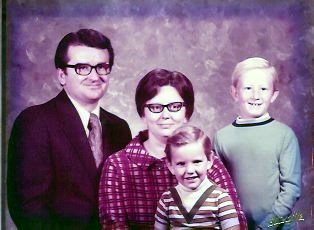
Troubled in spirit, Betty and I and our two sons left the mission work and evangelized for a short time. Our last revival saw at least twenty-five people baptized.
As the altars filled, my heart was breaking. Seekers were begging God to save them by what is called ‘praying through.’ You couldn’t simply kneel by a seeker and explain how true salvation works. The seekers had largely been brought up under the influence of Pentecostal teachings.
After leaving the field of evangelism, in God’s guidance and care, the next three years found ourselves in a local congregation. It was a UPC church, but the pastor was a gentle and compassionate man. August 1971 through August 1974 was our season of healing. I preached out from the local church but my major need was to get my belief system fully in accord with God’s word.
An interesting thing happened. The church we were attending had recently gone through a split. The pastor who was also a presbyter with the UPC, asked me to help him rebuild. When I told him that I did not believe a person had to speak in tongues as evidence of their salvation, he surprised me.
The pastor said that when the UPC first formed, many of the ministers of one of the forming groups believed the way that I believe, that speaking in tongues was not essential to salvation. This belief eventually disappeared under the stricter teaching of the other forming group. We agreed to disagree. I worked with this godly man for three years.
I formally left the UPC in 1974. [In the heart in 1971]
A Reach back in Time

I think it is important to share how I actually came to know and realize Jesus as my Lord and Savior. It was 1963.
Just out of the Navy, a cousin kept insisting that I go to church with her. So I did. It was in church that I first saw my wife-to-be. In short order, I fell in love with this beautiful Pentecostal girl. We married that same year. (That was 59 plus years ago.)
Not many months afterward I found myself in the world of the Pentecostal altar. Revival after revival found me on the altar. My heart was so thirsty. One Sunday afternoon I am sitting in our living room with my Bible in my hands, reading from the book of John. When I came to John 14, I saw that the questions being asked of Jesus were my questions. The Holy Spirit was opening my ears to hear.
Here is where it became more than personal. It was as though I was sitting right there with the apostles when Philip asked the Lord to show them the Father. That is when the Lord spoke my name –
“Have I been so long time with you, and yet hast thou not known Me, Buddy? He that hath seen me hath seen the Father; and how sayest thou then, ‘Shew us the Father?’ Believest thou not that I am in the Father, and the Father in Me…” (John 14:9,10 kjv)
I was so aware of the divine presence. My childhood prayer of, ‘Now I lay me down to sleep, I pray the Lord my soul to keep’, had become a reality. The Lord spoke a living faith into my heart. (Cf. Rom. 10:17)
Tears fell on my open Bible. Jesus was the very Lord that my mother had taught me to pray to as a child. But this time I knew who He really was. Jesus is Christ the Son of the living God. Jesus was and is God.

That very same consciousness of the Lord that I felt as a child was now fully manifested in my heart.
Yes, it was at that very moment that I came to believe in Jesus Christ with all my heart, my soul, my mind, and my strength. I was birthed into the kingdom of God’s beloved Son. He placed a seal upon my heart. (Eph1:13)
I have carried the seal of God in my heart to this very day. It is as the apostle wrote …
“The Spirit Himself testifies with our spirit that we are children of God, and if children, heirs also, heirs of God and fellow heirs with Christ, if indeed we suffer with Him so that we may also be glorified with Him.” (Rom 8:16-17)
The witness of the heart
Paul said it this way:
“For with the heart a person believes, resulting in righteousness, and with the mouth he confesses, resulting in salvation. For the Scripture says, ‘Whoever believes in Him will not be disappointed.’” (Rom 10:10-11 NASB)
This accords with what God said through the prophet Ezekiel:
“Moreover, I will give you a new heart and put a new spirit within you; and I will remove the heart of stone from your flesh and give you a heart of flesh. I will put My spirit within you…” (Eze36:26,27 nasb)
And this from the prophet Jeremiah:
“But this is the covenant which I will make with the house of Israel after those days … They will not teach again, saying, ‘Know the Lord,’ for they will all know Me, from the least of them to the greatest of them … for I will forgive their iniquity, and their sin I will remember no more.” (Jer 31:33,34)
But there was a problem –
Sometimes our hearts and our head are not in the same place. I knew and experienced Jesus as Lord in my heart at that very moment. I now believed and trusted in Him. Yet I was still under the influence of the Pentecostal altar. My true understanding of Biblical salvation was severely limited.
And thus we have a very sad note in Pentecostalism. The UPC has such stress on having to speak in tongues to be saved that an altar service can seem to be a total frenzy. How much this has changed likely depends on the individual UPC Church itself.
There is nothing in a Pentecostal altar service that even faintly resembles what happened in Acts.
It is not uncommon to hear seekers crying and begging God to save them. You can hear people shouting, “Just say, ‘Jesus, Jesus, Jesus, over and over, real fast.’” Or, “Say ‘hallelujah, hallelujah, hallelujah over and over real fast.‘“ Some are saying, “Turn loose!” Still, others are saying, “Hang on!” The person at the altar is drawn into a highly emotionally charged atmosphere. (With Charismatics they just teach you how to speak in tongues.)
Sometimes a circle will form around the seeker. He finds himself being moved around. His eyes are often tightly closed. The very moment the seeker makes any sound that seems not to be English, someone will shout, “He’s got it! He’s got it! He’s got the Holy Ghost!“ In turn, he gives in to all his emotions. So does everyone else.
Shouting and dancing are the norms. Laughter abounds. Then a moment of calmness starts to replace the emotionalism. Everyone is smiling. It is time to relax. The battle is over. But is it really?
The seeker is often told something like this; “Tomorrow morning when you wake up, the devil is going to tell you that you did not get anything. You just tell him that he is a liar.”
This is another part of the Pentecostal pattern. (Been there. Done that. Done it all. Been in the circle and one of those forming the circle.)
Why do they need to tell the seeker this?
The reason is that the very next morning the emotions will have subsided. It won’t be long before questions begin.
Where is the excitement? Where is the joy? Why am I having such doubts? It was so real last night. Why is it not real now? Was I really saved? Did I really speak in tongues?
This isn’t something the devil is telling him. These doubts are coming from within him. The new Pentecostal has entered into a religious world where doubt and fear will pretty much be the norm. This person will now have to learn to live on these emotional pushes.
The point is why would you need to tell a person who has received Jesus Christ as their Lord and Savior, that the next morning they’ll wake up feeling like nothing has happened? Salvation is not an emotional workup. It is a heart exchange.
When the Holy Spirit enters the heart of a believing one, the Spirit will be there tomorrow, and the next tomorrow, and the next tomorrow. This is called the testimony of the Spirit. Every true believer carries this testimony in his heart for his entire life.
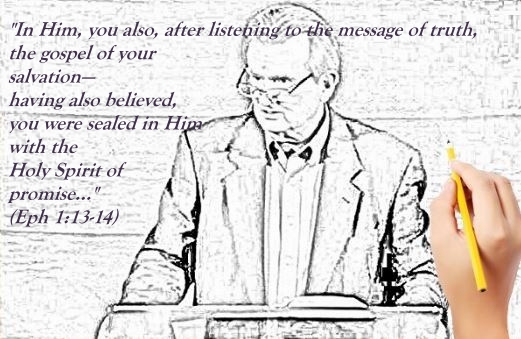
Why do so many Pentecostals struggle
In my own struggles, I use to say to my wife, ‘Honey, I feel like I’m caught in a net and I don’t know what it is.’
I truly loved the Lord with all my heart. What I did not know was that the net was the misguided teachings of the UPC. No one can experience their true freedom in Christ while laboring under misguided doctrines.
When you are brought up in a religious culture such as the UPC, you don’t know anything else. Everything a Oneness Pentecostal person is taught about salvation revolves around a single Scripture, where Peter said, “Repent, and be baptized every one of you in the name of Jesus Christ for the remission of sins, and ye shall receive the gift of the Holy Ghost.” (Acts 2:38 KJV)
Of course, they often tack on the end, ”…with the evidence of speaking in tongues.”
Many Pentecostals are surprised to find that the statement, ‘with the evidence of speaking in tongues’ is not part of Acts 2:38. In fact, it is not to be found anywhere in the Bible.
Especially for the Women
Let me mention one other item that is important. The ones who generally endure the most under the UPC yoke are the women. The rules largely apply to them. I will simply say that much of what the UPC calls ‘standards’ have little real Bible base. Paul speaks of these rules as self-made religion.
The Safety Net
If any of what I have written is of concern to you, we have a support group on Facebook. It is not a debate forum but rather a place of friendship. Its purpose is to help those from a Pentecostal background who may be struggling over certain issues found in Pentecostalism. I am the host of the group. Go to: https://www.facebook.com/groups/Departing
If you need someone to talk to on a more confidential basis, feel free to contact me by email, Buddy@ChristianChallenge.Org. Or message me on Facebook:
https://www.facebook.com/BuddyMartin
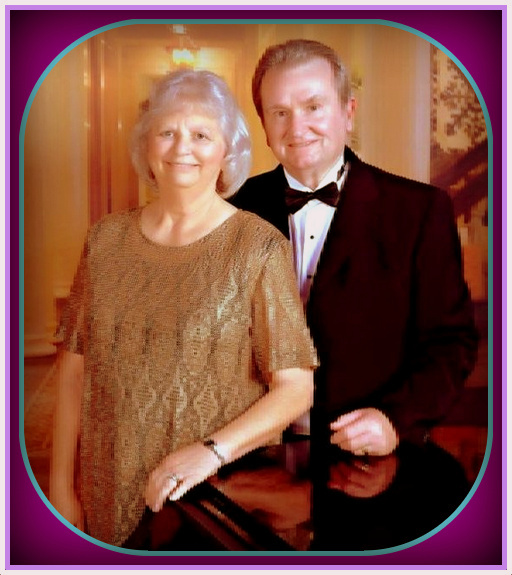
Buddy@ChristianChallenge.org.
My Facebook: https://www.facebook.com/BuddyMartin
Our ministry web site: http://www.christianchallenge.org/.
Views: 1038
